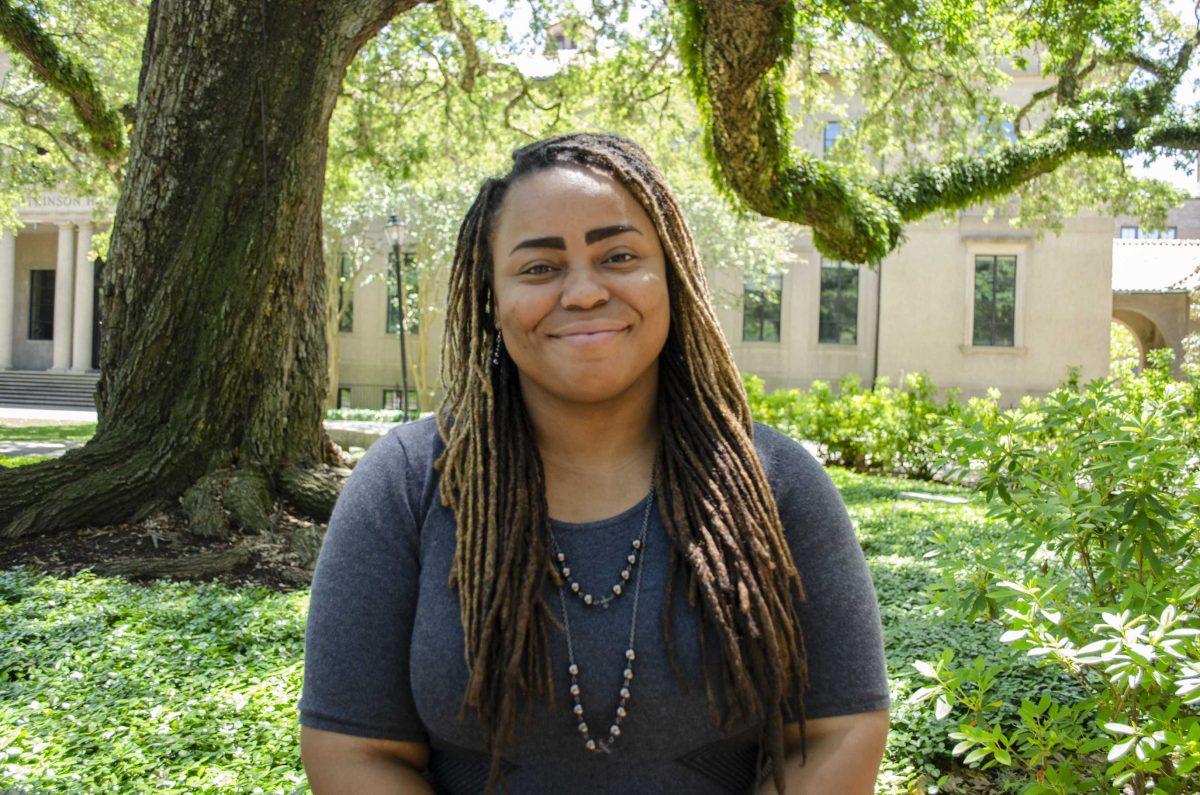Educational leadership and research Ph.D. student Sydney Epps’ passport has far more stamps than the usual college student’s, and everywhere she’s been has led her right to Baton Rouge. She is currently working to enrich the area through direct action within the community and hopes to stay a while longer.
Epps said she is an army baby who is the product of three generations of army veterans – this is just one of the reasons she has been to more than half of the states in the country. When her parents were busy with work obligations, she stayed with her godparents.
Epps said the differences between her parents’ and godparents’ lives stuck with her. She said the circumstances of their lives marked an essential aspect of being a black person or a person of minority status in America, and added onto the exposure to different things and peoples she experienced during high school.
“I saw another world in living with my godparents, so I really appreciated that dyad of seeing what it’s like to work very hard and not attain a lot of success, and then to work very hard and attain monumental success,” Epps said. “I knew that on neither end was anybody necessarily doing anything wrong to be set back.”
Epps’ godfather experienced great success in his business while her parents maintained working class status. Through education, Epps hopes to help students bridge the gap between these experiences and understand what she has learned during her life.
“You are either an outlier and you’re exceptional, or you are placed into this race of really never being able to get out of the ruts that are put in front of you, never given that big break or that opportunity or being lucky enough to be in the right place at the right time,” Epps said. “It really put my life into perspective.”
Epps said her success is due to her working hard, but it’s not due to the fact that other people weren’t. Her life experiences have helped her on the path to becoming who she is today.
“Sometimes I feel like I slipped through the cracks into a successful life and I wish that I could pull other people through, so I guess I’m trying to break through a lot of that grate to make to make it more open for other opportunities and that was because of him and seeing how hard he worked to become who he was,” Epps said.
Epps said she hopes to become a university president one day. She said she is also open to the professorship as she loves being in the classroom and had the opportunity last year to teach a popular Black Lives Matter class under the advisorship of professor Kenneth Fasching-Varner.
“The class was only supposed to be 25 students, it ended up ballooning to almost 40,” Epps said. “We always had guests in the classroom, I always allowed the students to bring their friends to class, bring your girlfriend to class, your cousin and whoever’s in town with you.”
Epps said education was a huge part of her growth and she wants to give the same back to students. She wants to bring them together to fight and get angry with each other, then learn how things became the way they are and finally to heal.
“We need more environments like that because people need to let that hurt out,” Epps said. “Honestly, that’s what the University is supposed to do. If you are graduating with a degree and you still think the way that you did when you came in about every subject, then we’ve taken your money and we’re not giving it back, but you haven’t gotten anything from that experience.”
Last year during the Blacks in Academia Lecture Series, in which a scholar was brought in every week, Silky Slim was one of the first individuals brought in to speak. Epps said Slim’s understanding of life as a disenfranchised black man and low-income citizen is valuable at the University, specifically because of his connection to Baton Rouge.
“We have to be knowledgeable as scholars to realize that experiential knowledge matters,” Epps said. “People’s experiences in the community need to be brought to the footsteps of higher education because we only know things from a theoretical perspective.”
Epps said she wants her impact on her students to be continuous. In this vein, she believes faculty and staff can benefit from continuing their education.
“We at times think that we are the truth-knowers and that we espouse truth to students to absorb, like a sponge, and to be honest I’ve heard some of the most ignorant things I’ve ever heard on this campus come from people who have Ph.D.s or EdDs,” Epps said. “So, I’m here to challenge that, as well.”
Graduate student urges importance of learning through experiences, education
By Ashlei Gosha
May 10, 2018
LSU doctoral student Sydney Epps talks about being a student activist on Monday, April 16, 2018.
More to Discover





